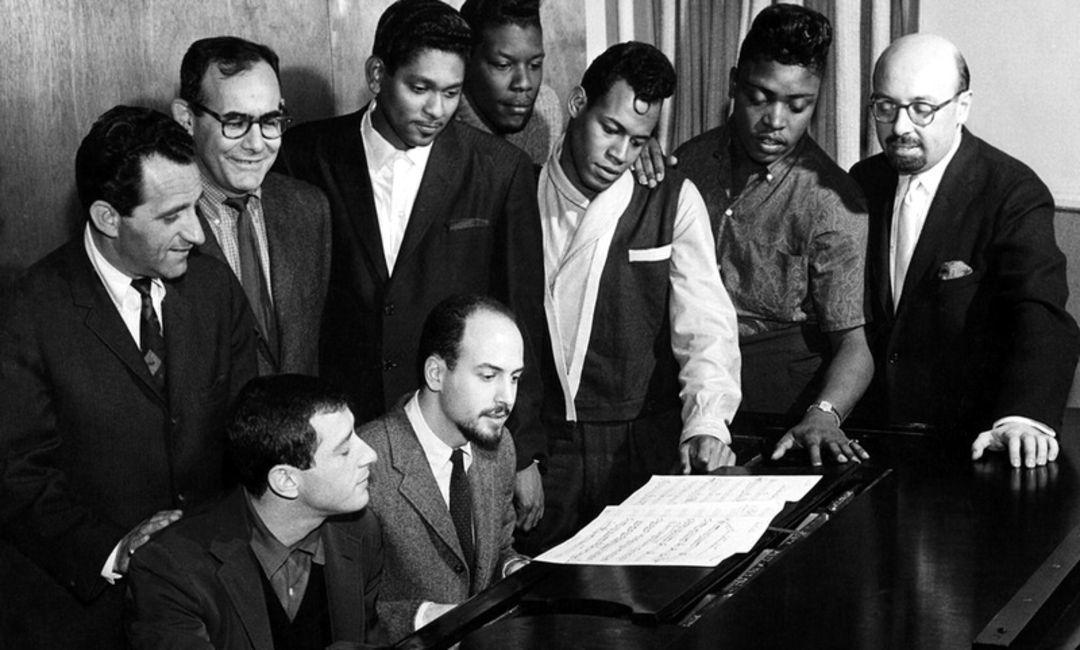
The Ertegün brothers, the sons of former Turkish Ambassador to Washington Münir Ertegün and one of whom launched Atlantic Records, contributed to the elimination of racial discrimination in the US and were revolutionary, director Ümran Safter, who made a documentary about them, has said.
Safter, the director of the documentary “Leave The Door Open,” which was screened for the first time at the U.S. Consulate General in Istanbul, spoke to state-run Anadolu Agency about how the idea of the documentary came up, its story and the reactions.
Safter said she read a small article in an American newspaper about three years ago and started to research about it.
Stating that she was very excited by the news about how the “walls of racial discrimination” were broken during a jazz concert at the Turkish Embassy, Safter said, “As I researched the subject, I came across a wonderful story and I decided to make the documentary. We started shooting in 2019, after finishing the shooting in 2020 and completing the editing, the COVID-19 pandemic started. It has been shown at festivals since the beginning of this year.”
Safter said the 1930 and 1940s saw one of the worst years of racial discrimination in the U.S., with a deeply segregated society. However, Safter said, Ahmet and Nasuhi Ertegün worked towards eliminating this.
Reminding that Ahmet and Nasuhi Ertegün started playing jazz music at a young age, Safter said, “Münir Ertegün was appointed as ambassador to the U.S. in 1930. He had two sons, Ahmet and Nasuhi. They were in love with jazz music. While still in London, their mother took them to the concerts of legendary jazz musicians such as Duke Ellington and Cub Calloway.”
“His appointment as ambassador to Washington excited the children, because Washington was one of the important centers of jazz music at that time. They met legendary musicians of that period such as Ellington and Louis Armstrong and invite them to the embassy,” she added.
Emphasizing that the Ertegün brothers made such a revolutionary move for that period, Safter said that they enabled black and white musicians to make music every Sunday in the embassy building.
“This is essentially a first in American history, and realized by brothers Ahmet and Nasuhi, who had a great knowledge of jazz music. Thus, they were breaking new ground with the jazz music concerts at the embassy and the concerts held at the Jewish cultural center. They managed to break the walls of racial discrimination in the U.S. with the power of jazz music. Our documentary ‘Leave The Door Open’ tells this story in full detail.”
Stating that the most information in the documentary consists of the archive footages, Safter stated that they also benefited from the congress library and many university archives.
She noted that during the making of the documentary, Selma Ertegün, the daughter of Münir Ertegün, shared the family album with them, adding, “She also told us very interesting anecdotes from that period. It was not easy to make the documentary, because there were very few living people from that period.”
Best documentary award
Stating that the first screening of the documentary was held in April 2021 at the embassy residence where the story took place, Safter said, “The Washington Post wrote a nice article about the documentary. It was screened at the DC Independent Film Festival after its premiere at the embassy. We got the ‘best documentary’ award there, then we attended a film festival in Dallas and then in many festivals in the U.S. We received good reviews from journalists and experts in the U.S. It received great interest as it is not a very well-known story.”
Stating that they are trying to ensure that the documentary, which will be screened in Italy in November, reaches as wide an audience as possible, Safter underlined that they hope the documentary will raise awareness about racial discrimination.
Pointing out that racism is the “biggest disease” of our age, Safter said, “These actions of the Ertegün brothers to eliminate racial discrimination were revolutionary. Racism is rapidly rising in Europe, America, Turkey and many parts of the world, societies are polarizing. We still need stories like this today. I hope more documentaries like this is made.”